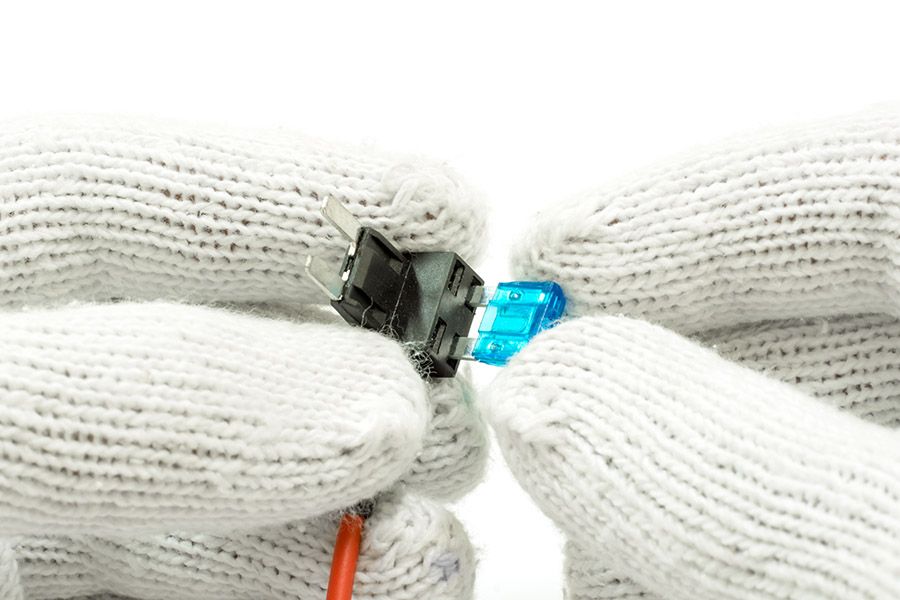
If you're a buyer of electrical components, you've likely come across fuse holders. But what exactly are they, what are they used for and what are the different types of fuse holders?
In this article, we'll explore the world of fuse holders and answer some common questions about them.
What are Fuse Holders?
Fuse holders are devices that hold fuses in place. A fuse is an electrical safety device that protects an electrical circuit from damage caused by excess current.
When the current in a circuit becomes too high, the fuse will "blow," cutting off the flow of electricity and preventing damage to the circuit.
What are Fuse Holders Used For?
Fuse holders are used to hold fuses in place and provide a secure connection between the fuse and the circuit. They are commonly used in automotive, industrial, and electronic applications.
Fuse holders can be mounted on a PCB or panel, or they can be used as standalone components.
What are the Different Types of Fuse Holders?
There are several different types of fuse holders, including:
- PCB Mount Fuse Holders: These are designed to be mounted directly on a printed circuit board.
- Panel Mount Fuse Holders: These are designed to be mounted on a panel, such as a control panel or an electrical enclosure.
- In-Line Fuse Holders: These are designed to be used in-line with a wire or cable, allowing a fuse to be added to an existing circuit.
- Blade Fuse Holders: These are designed to hold blade fuses, which are a type of automotive fuse that have a blade-shaped contact. Blade fuse holders are the most common type of automotive fuse holder. They’re designed to hold blade fuses, which have two prongs that fit into the holder.
- Glass Fuse Holders: These are designed to hold glass fuses, which are a type of fuse that have a glass body. Glass fuse holders are designed to hold glass fuses, which are tubular in shape and have metal caps on both ends. Glass fuse holders are not as commonly used in modern vehicles as blade fuse holders, but they are still used in some older vehicles.
- Miniature Fuse Holder: Miniature fuse holders are designed to hold miniature fuses, which are smaller than standard fuses and are commonly used in electronic devices. Miniature fuse holders are available in both panel mount and PCB mount configurations, and typically have a compact design to fit into tight spaces.
- Sub-miniature Fuse Holder: Sub-miniature fuse holders are even smaller than miniature fuse holders and are designed to hold sub-miniature fuses, which are the smallest type of fuses available. Sub-miniature fuse holders are often used in applications such as medical equipment, automotive electronics, and telecommunications. They’re typically PCB mounted and have a very small profile to fit into the tightest of spaces.
Factors to Consider When Purchasing Fuse Holders
Whether you're working on an automotive, industrial, or electronic application, choosing the right fuse holder is crucial for ensuring the safety and reliability of your circuit.
Here are some of the key factors to consider to ensure that you choose the right one for your application.
Fuse Type: The type of fuse holder you need will depend on the type of fuse you're using. Automotive fuses come in different sizes and shapes, such as blade fuses, glass fuses, and mini fuses. Make sure you choose a fuse holder that is compatible with the type of fuse you're using.
Amperage Rating: The amperage rating of the fuse holder should match the amperage rating of the fuse you're using. If the fuse holder is rated for a lower amperage than the fuse, it can overheat and cause damage to the electrical system.
Voltage Rating: The voltage rating of the fuse holder should also match the voltage rating of the electrical system. If the voltage rating is too low, the fuse holder can fail and cause a short circuit. If the voltage rating is too high, it can damage the electrical system.
Mounting Style: Fuse holders can be mounted in different ways, such as panel mount, PCB mount, or in-line mount. Choose a mounting style that is compatible with your application and provides a secure fit.
Material: The material of the fuse holder can affect its durability and performance. Plastic fuse holders are lightweight and affordable, but they may not be as durable as metal fuse holders. Metal fuse holders are more durable and provide better heat dissipation, but they can be more expensive.
Environment: Consider the environment where the fuse holder will be installed. If it will be exposed to high temperatures, moisture, or other harsh conditions, you may need a fuse holder that is designed to withstand those conditions.
If you’d like some advice on what fuse holder to choose, phone NPA today on (08) 8268 2733 or browse our online store here to see our extensive range.

